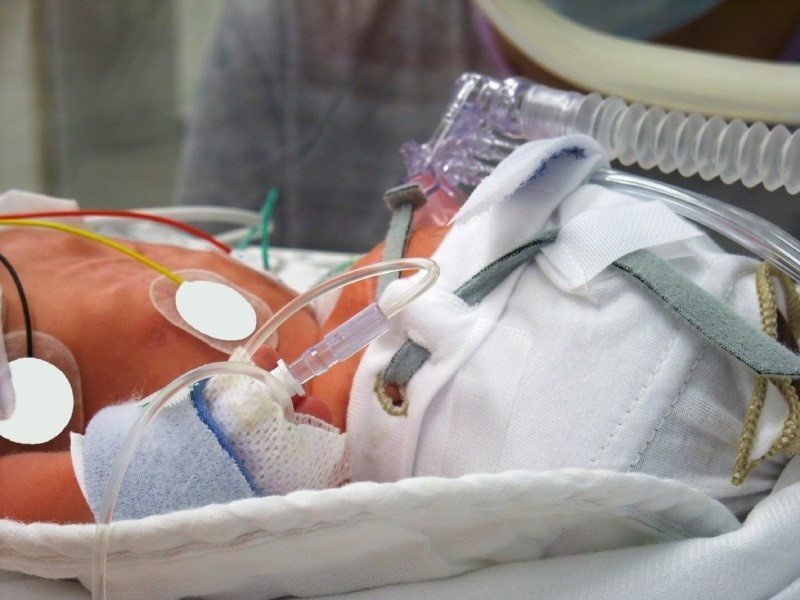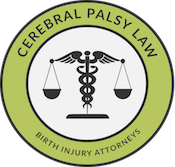Hypoxic Ischemic Encephalopathy (HIE; Birth Asphyxia) Attorneys in Flint, Michigan
At Michigan Cerebral Palsy Attorneys, our team of Flint, Michigan hypoxic ischemic encephalopathy (HIE) lawyers understands the significant emotional, mental, physical and social obstacles associated with a birth injury diagnosis. Moreover, we understand the great strides a child will take given adequate medical and rehabilitative support. Our Flint, Michigan hypoxic ischemic encephalopathy (HIE) lawyers are dedicated to providing the resources necessary to help your injured loved one thrive—throughout this page, we’ll discuss the basics of a hypoxic ischemic encephalopathy diagnosis, explain how acts of medical malpractice cause hypoxic ischemic encephalopathy, and provide access to disability resources and legal help in Flint, Michigan.
If your loved one was diagnosed with hypoxic ischemic encephalopathy at a Flint, Michigan hospital, you may have grounds for a medical malpractice claim. Our Flint, Michigan hypoxic ischemic encephalopathy (HIE) lawyers encourage you to inquire about your legal options by contacting us in either of the following ways—you may fill out our online contact form here or call us toll-free at (888) 592-1857.
About Hypoxic Ischemic Encephalopathy
What is HIE?
Hypoxic ischemic encephalopathy can be a complex diagnosis to understand (no doubt due in part to the length of the term itself). Before we discuss the details about signs, symptoms, diagnoses, treatments, causes and risk factors for HIE, let’s first break down the term hypoxic ischemic encephalopathy—
can be a complex diagnosis to understand (no doubt due in part to the length of the term itself). Before we discuss the details about signs, symptoms, diagnoses, treatments, causes and risk factors for HIE, let’s first break down the term hypoxic ischemic encephalopathy—
- “Hypoxic” refers to hypoxia/hypoxemia, which means diminished amounts of oxygen in the blood.
- “Ischemic” refers to ischemia, which means a decreased flow of oxygen to the brain.
- “Encephalopathy” is the broad term given to any disorder or disturbance of the brain.
Therefore, hypoxic ischemic encephalopathy is a form of brain injury caused by the decreased flow of oxygenated blood to the brain. Babies can suffer hypoxic ischemic encephalopathy before, during, or just after delivery and, depending on the severity of the oxygen-depriving injury, the baby will generally have varying degrees of permanent brain damage. In the next section, we’ll list these injuries.
Other terms commonly used in place of hypoxic ischemic encephalopathy (HIE) include birth asphyxia, intrapartum asphyxia, neonatal encephalopathy, and NE.
Injuries & Disabilities Caused by HIE
Neonates can endure some oxygen deprivation before they’re born, but prolonged hypoxic ischemic events are known to cause the following lifelong disabilities, injuries, and conditions:
- Cerebral palsy (CP)
- Motor impairments
- Movement disorders
- Seizures and epilepsy
- Cognitive/Intellectual impairments
- Fetal death
- Developmental delays and neurodevelopmental delays
Signs and Symptoms of HIE
Clinical signs of hypoxic ischemic encephalopathy visible after delivery may include low Apgar scores, seizures, feeding issues, the absence of brain stem reflexes, coma, low muscle tone, organ failure or other organ problems, acidity in the blood, or the need for resuscitation. In other circumstances, individuals with hypoxic ischemic encephalopathy will not show any signs of HIE until they are older. Any individuals close to a developing child should pay close attention to the child’s behaviors and developmental achievements in order to detect possible signs of hypoxic ischemic encephalopathy.
Diagnosing HIE
If a hypoxic ischemic event occurs during pregnancy and/or delivery (or if the baby shows signs of HIE), medical professionals must quickly, thoroughly, and accurately evaluate and diagnose the brain damage and move onto intervention techniques. Brain imaging techniques, arterial blood gas tests, ultrasounds, and blood glucose tests are used to diagnose and interpret the extent of brain damage from hypoxic ischemic encephalopathy.
Is it Possible to Treat Hypoxic Ischemic Encephalopathy?
Treatment and Therapy for HIE

A newborn with HIE undergoing hypothermia treatment
Once hypoxic ischemic encephalopathy is diagnosed, it is crucial for medical professionals to quickly and accurately begin hypothermia treatment, the only known treatment for HIE that improves and/or stops the damage caused by oxygen deprivation. Infants must be older than 36 weeks, show signs of blood acidity, and have experienced the oxygen-depriving insult within a six hour time frame of the onset of treatment in order to be eligible for hypothermia treatment. All Flint, Michigan hospitals have the facilities and technology necessary to provide hypothermia treatment to neonatal patients with hypoxic ischemic encephalopathy. When hypoxic ischemic encephalopathy is present, any failure on the part of a medical professional to provide hypothermia treatment within the standard regulations is medical malpractice. To read a more complete set of guidelines for hypothermia treatment, visit our attached Hypothermia Treatment page.
For patients that cannot or did not receive hypothermia treatment after a hypoxic ischemic event, supportive therapy techniques are recommended. Individuals often use one or more therapy technique to recuperate from lasting impairments from HIE.
The Causes of Hypoxic Ischemic Encephalopathy
Medical Malpractice and HIE in Flint, Michigan
Hypoxic ischemic encephalopathy is often the result of a mismanaged pregnancy and/or delivery. Without careful attention and care from medical professionals, a number of common complications can result in devastating fetal oxygen loss. The following complications, among others, may lead to HIE when mishandled or misdiagnosed:
- Premature birth
- Post term delivery
- Nuchal cords
- The misuse of delivery assistance tools such as forceps or vacuum extractors
- Macrosomia
- Cephalopelvic disproportion (CPD)
- Intracranial hemorrhages
- Malpresentation (face presentation and breech presentation)
- Uterine rupture
- Placental abruption
- Fetal monitoring errors
- Preeclampsia
- Maternal health issues and infection
- Premature rupture of the membranes (PROM; PPROM)
- Anesthesia errors
- Oligohydramnios
- Polyhydramnios
- Umbilical cord prolapse and compression
Pursuing Legal Help for HIE from Medical Malpractice
Flint, Michigan Hypoxic Ischemic Encephalopathy (HIE) Lawyers
Caring for a loved one with injuries from a traumatic birth is emotionally and financially demanding. Our Flint, Michigan hypoxic ischemic encephalopathy (HIE) lawyers are committed to helping victims of medical malpractice and their families live to their fullest—for decades, we’ve successfully secured funds to help clients pay for the medical and lifestyle supports necessary to rehabilitate from and adjust to their new lifestyles. We urge you to contact our Flint, Michigan HIE attorneys today with any legal inquiries, questions, or concerns—you may fill out our online contact form or call us toll-free at (888) 592-1857. Our team of Flint hypoxic ischemic encephalopathy lawyers and professionals will provide you with a legal consultation free of charge. If Michigan Cerebral Palsy Attorneys takes you case, you will not be charged until our Flint HIE attorneys win your case.
Additional Reading on Hypoxic Ischemic Encephalopathy
Our Flint, Michigan hypoxic ischemic encephalopathy (HIE) lawyers have gathered the following HIE resources to help answer any additional questions you may have.
- Flint, Michigan HIE and Disability Resources
- Hypoxic Ischemic Encephalopathy Info Page
- Choosing a Michigan HIE Lawyer for Your HIE Case
- HIE Infographic
- Hypothermia Treatment for HIE
- Hypoxic Ischemic Encephalopathy Blogs:
